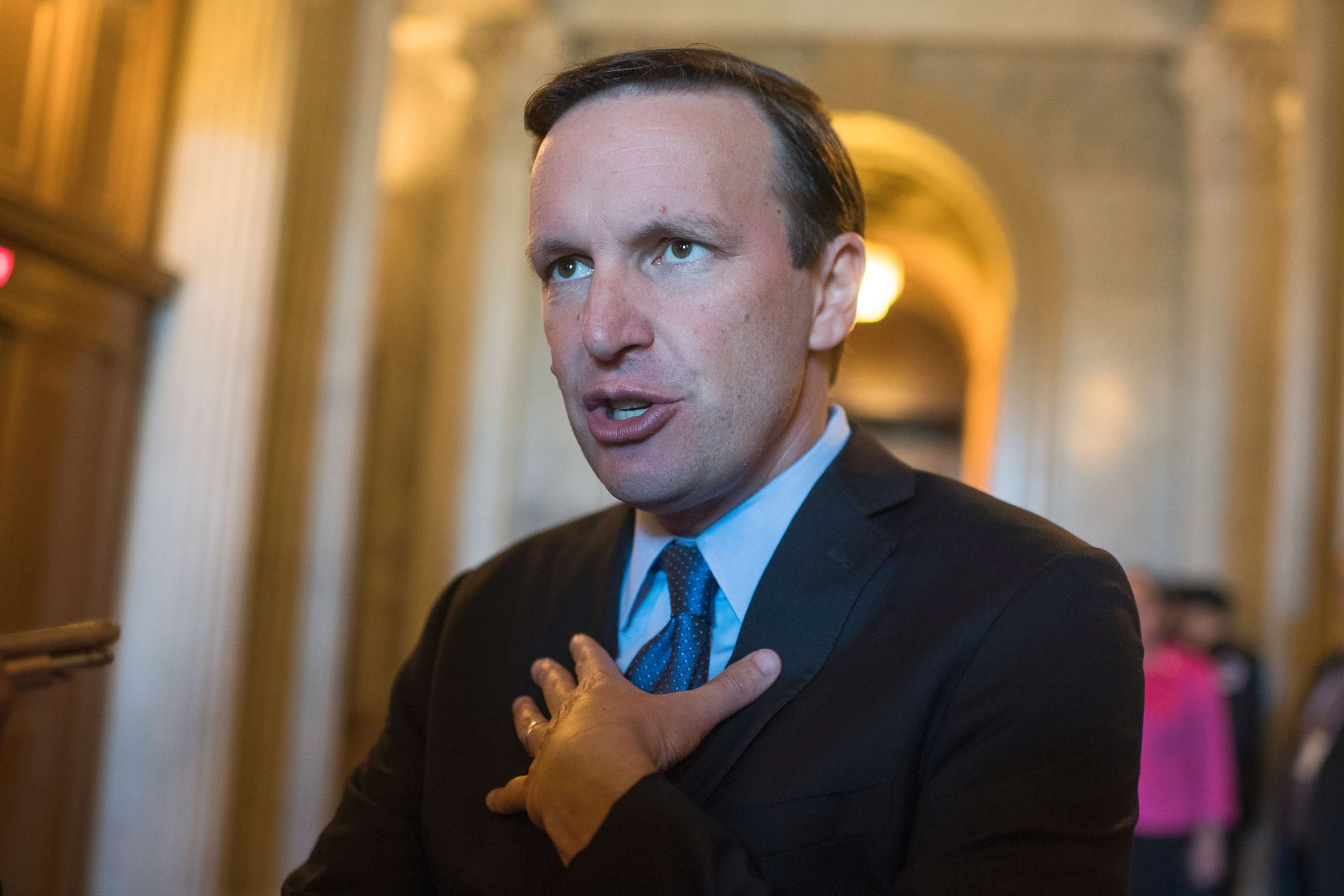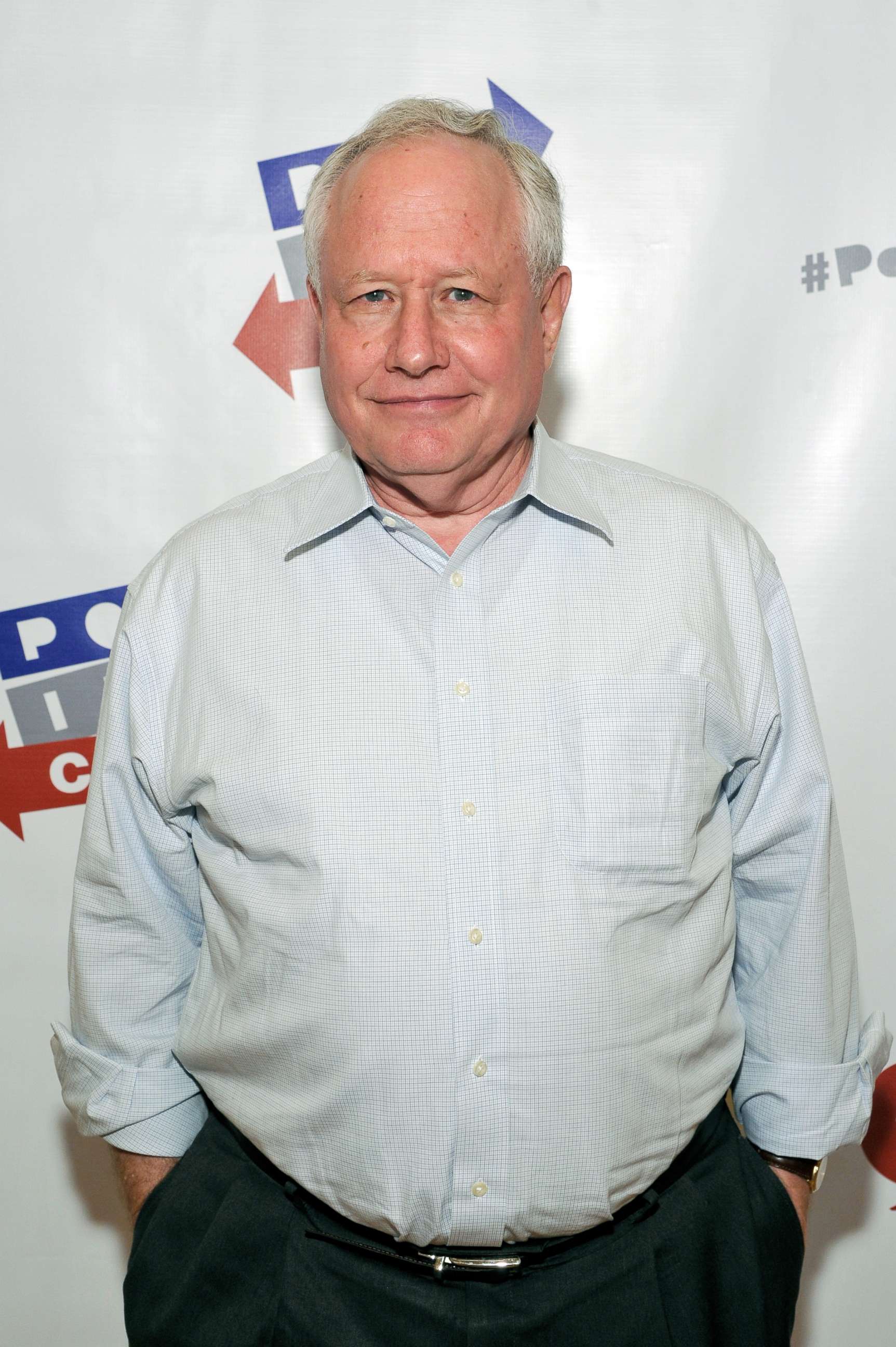Call for bump stock review a 'significant crack' in NRA's 'political facade': Sen. Murphy
Sen. Chris Murphy and Bill Kristol joined the "Powerhouse Politics" podcast.
— -- Connecticut Sen. Chris Murphy believes the National Rifle Association's call for a review of bump stock devices in the aftermath of the Las Vegas mass shooting represents "the first significant crack" in the organization's "political facade" and predicted that the anti-gun movement will someday cultivate strength comparable to that of the pro-gun lobby.
"We will eventually beat Republicans who vote against the 80, 90 percent of their constituents that want common sense change like universal background checks," said Murphy, a Democrat, on this week's "Powerhouse Politics" podcast with ABC News' chief White House correspondent Jonathan Karl and political director Rick Klein.

Murphy, whose impassioned, almost-15-hour Senate floor talk-a-thon in 2016 made him one of the country's leading voices on gun control, views bump stocks -- devices that alter semi-automatic weapons to shoot nearly automatically -- as the first opening for those seeking more stringent restrictions on guns.
"I do think it shows the first significant crack In the NRA's political facade," said Murphy. "They do not want a legislative fight on this issue because they think they will lose. Thus, they push the [Bureau of Alcohol, Tobacco, Firearms and Explosives] to do it administratively."
Last week, the NRA's CEO Wayne LaPierre and top lobbyist Chris Cox released a joint statement in which they called upon the ATF "to immediately review whether [bump stocks] comply with federal law." The statement added: "The NRA believes that devices designed to allow semi-automatic rifles to function like fully-automatic rifles should be subject to additional regulations."
The devices are currently legal and were found on a number of the weapons possessed by Stephen Paddock, the gunman who killed 58 people in Las Vegas.
Cox stopped short however of advocating for an outright ban on the apparatuses -- which utilize recoil to facilitate continuous trigger-pulls -- during an appearance this weekend on "Fox News Sunday."
“We don’t believe that bans have ever worked on anything," he said.
Murphy, who previously represented the Connecticut congressional district home to Sandy Hook Elementary School where a 2012 shooting killed 26, noted that even slight concessions by the NRA represented a major shift in the gun control debate.
"This has been the first time since I have been in Congress that the NRA have shown any willingness to budge on gun laws," he said. "That is because the balance of political power is starting to shift."
In a separate interview on the podcast, conservative political commentator Bill Kristol remarked upon the fractures within the Republican Party and his own tenuous party identification.

"I consider myself [a Republican] who hopes that the Republican Party can be saved," said Kristol, who at first paused when asked about his allegiance by Karl. "If you asked me that nine months ago, I wouldn't have hesitated before answering."
Kristol pointed to the influence of former White House chief strategist Steve Bannon in describing how the party has changed. Traditional advocacy for free-market ideals has been replaced with nationalism and protectionism, which is, in part, the product of Bannon's influence, he said.
"I don't think it's any great mystery, Stephen Bannon wants to destroy the old Republican Party," said Kristol. "He does not agree with it. He thinks that it's bad for the country. He doesn't like free trade. He doesn't like modern immigration policy. He doesn't like old-fashioned Republican internationalism.
"He wants this, kind of, European-style, populist, new-right upheaval and he's going about trying to make it happen," Kristol continued, adding, "Given that Trump is in the White House more or less supporting this -- I take it pretty seriously."
The divisions among Republicans could become even greater with the approaching 2018 midterm elections, Kristol pointed out. Already, in 2017, the far-right former Alabama state Supreme Court Chief Justice Roy Moore (who was endorsed by Bannon) defeated the President Donald Trump-backed Sen. Luther Strange in that state's Senate primary for Attorney General Jeff Sessions' seat.
As a result of the GOP's "civil war," as Kristol called it, the party could be vulnerable to inroads by Democrats and Alabama could be a bellwether.
"I think Moore will underperform Jeff Sessions," he said, adding, "Is it totally out of the question that [Democratic candidate] Doug Jones makes it very competitive in Alabama -- it's an awfully red state, obviously -- but there's some polling that shows that [the race's margin] is single digits… I think there is an outside chance that Jones could win."




